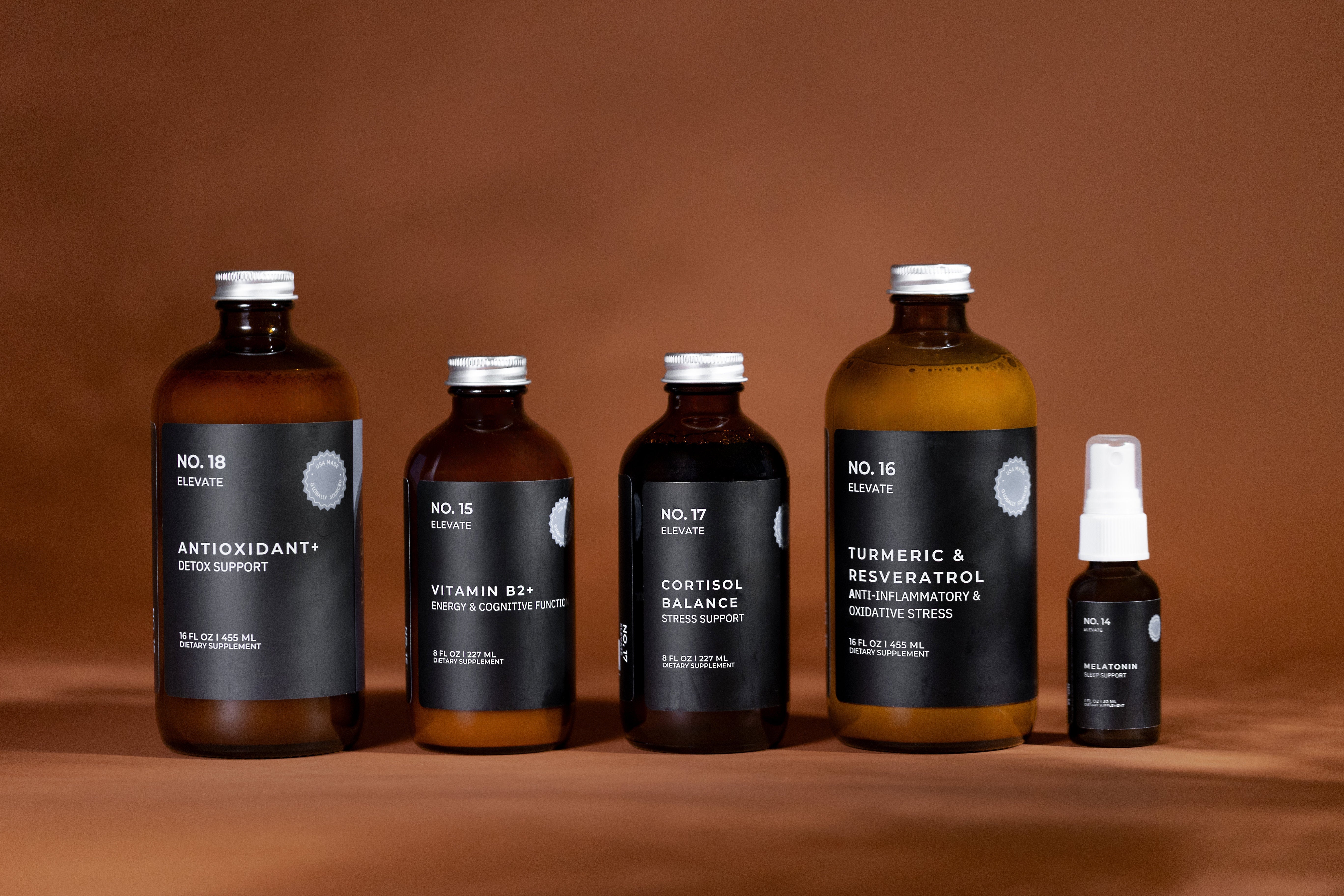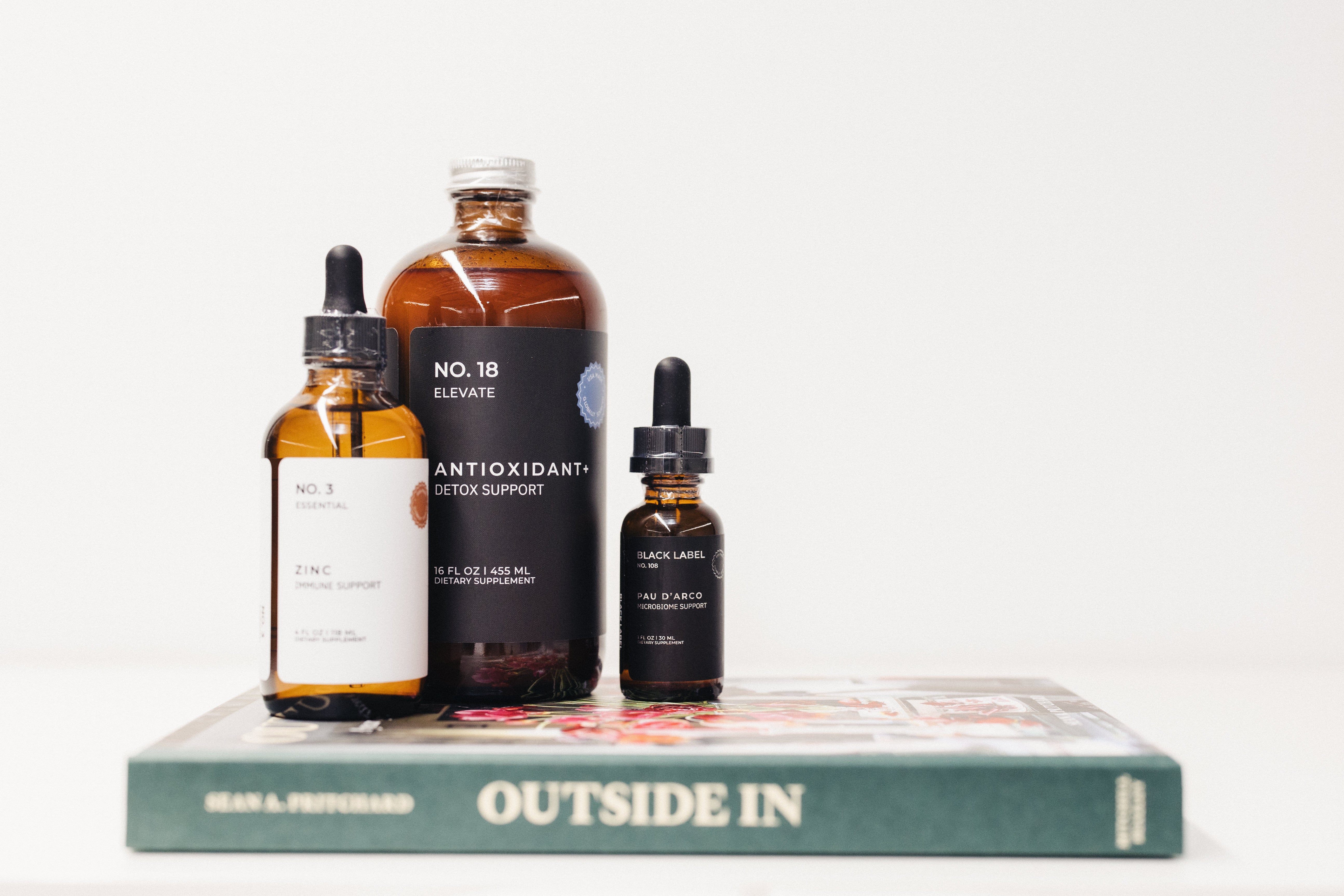Article: Gut Health: Your Microbiome Does More Than You Think

Gut Health: Your Microbiome Does More Than You Think
If you're not taking your gut health seriously, you're not serious about your health.
Why? Your gut is the foundation of your overall health. That's a fact; not an opinion.
Gut health isn’t just about digestion, BMs(Bowel Movements), and avoiding bloat. It’s also not solved by “taking a probiotic a day”….And it’s definitely not about drinking kombucha, fasting, then wolfing down a spaghetti dinner because you’ve earned it.
When your gut is working properly, it supports everything from brain chemistry, to hormone balance, to immune function. But when it’s out of balance? Everything else tends to follow.
The Gut Is More Than Just a Tube
When people think of the “gut,” they usually picture the stomach and intestines (all 25+ feet of them). And while that’s technically accurate, what we’re really talking about is the entire digestive ecosystem.
That includes:
- Your digestive tract from your mouth to your colon
- The gut microbiome that makes up trillions of bacteria, yeasts, and fungi living in harmony within your GI tract
- The mucosal lining that protects your gut wall
- The enteric nervous system (aka your “second brain”)
- And the immune system, of which 70%+ lives in the gut
Gut health is about how all of these systems function together.
Your Microbiome: Big numbers and Bigger Responsibilities
There are trillions of microorganisms living in your gut. Fact: you have more bacterial cells than human cells in your body. This enormous community of health-conscious microbes:
- Break down food and produce nutrients as a byproduct
- Help regulate inflammation and immune function
- Trigger messages to your brain via neurotransmitters
- Defend against pathogens
- Help maintain the integrity of your gut lining (the thing that absorbs your nutrients)
But when that community gets disrupted by things like antibiotics, stress, poor diet, alcohol, chemicals, or environmental toxins, it can cause something called dysbiosis: an imbalance of beneficial and harmful microbes.
How do I know if I have Dysbiosis?
Dysbiosis often leads to symptoms that seem totally unrelated to digestion.
- Brain fog
- Eczema or skin issues
- Joint pain/achiness (inflammation)
- Emotional instability (Mood swings)
- Hormonal irregularities
- Autoimmunity
- Chronic Fatigue
So if you’ve ever felt “off” without knowing why… your gut should be considered ground zero.
Think of your microbiome like the oil in your car’s engine. (If you’re not a car person, today’s your lucky day! You’ll learn two useful things today.)
Engine oil doesn’t just sit there. It coats every moving part, reducing friction, cooling hot spots, and flushing out microscopic grime that would otherwise clog the system. It’s the unsung hero that keeps the engine humming smoothly in the background.
But if you let that oil get old, dirty, or depleted? That’s when metal grinds on metal, heat builds, and performance drops.
Eventually, the engine doesn’t just run poorly; it breaks.
Your gut works the same way. Your microbiome is constantly regulating digestion, immunity, mood, inflammation and even your energy. When it’s healthy, you don’t notice it because everything just works. But when it’s out of balance? You start noticing brain fog, bloating, fatigue, joint pain, or immune dysfunction creeping in.
Tending to your gut is like doing regular oil changes.
It keeps the whole system (you) running clean, cool, and capable for the long haul.
What Does a Healthy Gut Feel Like?
A healthy gut isn’t just about having regular bowel movements (though that’s a big one).
Signs your gut is working well include:
- Daily, well-formed stools without straining or urgency
- No bloating, cramping, or discomfort after eating
- Consistent energy throughout the day
- Balanced mood and mental clarity
- Strong immune resilience (you don’t get sick all the time)
- Clearer skin, less puffiness or inflammation
In other words, your baseline is consistent, and you can feel the benefits of high quality, nourishing foods.
Modern Life is Brutal on The Gut.
We’re exposed to chronic stress, processed foods, chemicals (like glyphosate), food dyes, NSAIDs, antibiotics, and sleep deprivation. All of these can damage the gut lining and microbiome. Some can do it immediately while others do so over long periods of time, making it hard to see them as a contributor in your gut dysfunction. Don’t fall for the old saying, “Well, I’ve eaten like that my whole life and I’ve been fine”…yeah, until you’re not.
So, What Is “Supporting Gut Health” Really?
It’s not about quick fixes. It’s about creating the conditions for the body to restore balance.
That includes:
- Feeding beneficial bacteria (prebiotics)
- Restoring missing bacteria (probiotics)
- Healing the gut lining and mucus barrier (L-Glutamine, Marshmallow Root, Aloe Vera, Slippery Elm, and more)
- Managing inflammation and immune overactivation (Antioxidants, Turmeric, and Resveratrol)
- Strengthening the gut-brain connection (Vitamin B2, B12, Alpha Lipoic Acid, CoQ10, Magnesium)
- Clearing pathogens and toxins that don’t belong (Antioxidants, Ginger, Wormwood, Pau D’Arco, Berberine, Chinese Skullcap)
You don’t need to take 20 different supplements a day…but you do need a targeted strategy, especially if you’re dealing with symptoms.
The Good News?
The gut responds quickly to the right inputs. When you realize that creating balance within your gut takes time, consistency, and requires you to listen to your body, everything becomes easier to approach. Small steps on a solid foundation will always win against huge leaps on loose gravel.
Want more directly on first steps? Look for our article on prebiotics, probiotics, and postbiotics, and how they work in your body and when you need them. Because understanding what you’re putting into your body should be the first step toward healing it.


Leave a comment
This site is protected by hCaptcha and the hCaptcha Privacy Policy and Terms of Service apply.